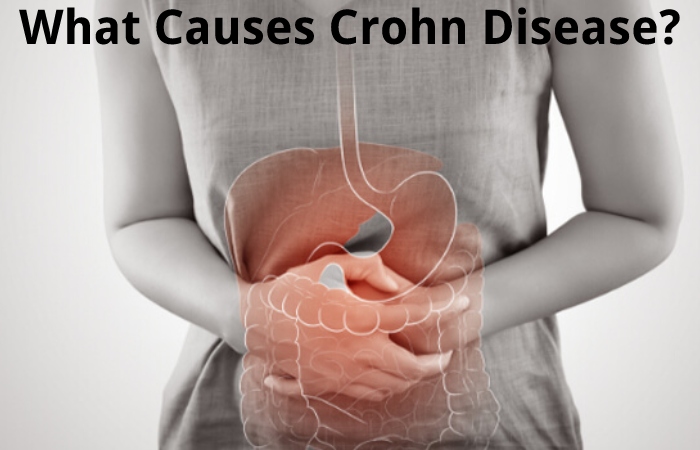Table of Contents
Crohn-
Crohn’s disease is a pathology that affects the digestive system, and mild or intense symptoms can occur. As a result, it can affect the patient’s quality of life. In addition, if the patient is a child, it can alter her growth or development.
According to data published by the Spanish Society of Digestive Pathology (SEPD), “1 in 450 people suffer from diseases related to the digestive tract”.
In this article, we will explain Crohn’s disease, its causes, and of course, what treatments are recommended.
What is Crohn Disease?
Crohn’s disease, ileitis, or enteritis is a pathology that affects the intestine. It is related to ulcerative colitis, an inflammation of the lining of the large intestine (colon).
In this pathology, an inflammation develops from the digestive system’s beginning and ends in the rectum. The alteration can occur in a specific place in the intestinal tract, the final part of the intestine being the most common. In some cases, this disease can be harrowing and even debilitating.
According to official research sources, this disease is estimated to affect 200 patients per 100,000 inhabitants. Furthermore, authorized agencies estimate that chronic diseases will increase in the coming years.
On the other hand, this disease affects patients’ quality of life and impacts the workplace, especially when they suffer from intense symptoms. In fact, according to a report issued by the EY Life Sciences Research Center, “Inflammatory Bowel Disease current situation and health care challenges,” it was explained that Spain is one of the countries with the highest percentage of young adult patients and even that this The disease is more prevalent in developed countries. In addition, the report includes measures to address the economic impact of Crohn’s disease.
Crohn Disease Symptoms
Ileitis can present mild or intense symptoms. This will largely depend on the progress of the disease or the affect part of the intestine. It should be noted that it can affect multiple segments of the intestine.
It is essential to consider that some patients may have the disease in an inactive state, without any symptoms. The symptom autological picture can develop little by little or be abrupt. That is, the symptoms can appear suddenly and abruptly.
Next, we will indicate the most common symptoms when the disease is active.
Fever
Weight loss and malnutrition.
Moderate or severe diarrhea.
Abdominal pain.
Colic.
Fistula, abscess, or ulcer near or around the anus.
Thrush.
Blood when defecating and in the stool.
Tiredness/fatigue.
severe symptoms
Symptoms may be severe, which can lead to the development of complications. Patients may experience the following symptoms:
Kidney Stones
Delay in development or growth (in cases of pediatric patients)
liver inflammation
Inflammation of the skin, eyes, and joints may be experienced.
You should see a doctor if these symptoms occur. Similarly, it is advisable to consult a specialist if sudden symptoms arise, such as fever with no apparent cause, abrupt weight loss, diarrhea that does not improve, blood in the stool, etc.
What Causes Crohn Disease?

The causes that trigger Crohn’s disease are still being studied. Although some medical research has concluded that stress and an unbalance diet can aggravate the patient’s clinical picture, they are not the causes of the development of this pathology.
Although the cause of Crohn’s Disease is unknown, specific medical investigations have point out some factors that can affect its development.
Genetic Predisposition
According to statistics, Crohn’s disease is more common among those who have relatives with this disease, so there is a genetic predisposition.
As explain, this situation may be relate to mutations in the genes on chromosomes 5 and 10, in which mutations in the ATG16L1, IL23R, IRGM, and NOD2 genes increase the chances of developing this intestinal disease. Therefore, genetic factors may be one of the causes of Crohn’s disease. However, further research studies are required.
Immune System
According to some specialists, Crohn’s disease behaves like an autoimmune disease, in which the immune system attacks the digestive tract cells.
Now, it is unknown what triggers this behavior of the immune system. But, it is estimate that it happens when the body has to deal with a virus or a series of microorganisms.
Risk factors for Crohn Disease
Some patients may have a higher risk of developing this pathology.
Age. This disease mainly affects young patients. It is usually diagnose before the age of 30.
Family background. The risk increases if you have a relative with this disease, especially a father or mother.
Anti-inflammatory drugs. The administration of this type of medicine can cause inflammation of the intestine. Although it does not cause the disease, it can cause complications.
How is Crohn Disease Treated?
Although Crohn’s disease has no cure, some treatments can relieve symptoms and improve the patient’s quality of life.
Diet. A diet with vitamins and minerals such as calcium, iron, and zinc, among others, is recommend Highly process or high-fat foods should avoid. In addition, nutritional supplements can be recommend to prevent anemic conditions.
Medications. The specialist will prescribe drugs in the acute stages of the disease.
Surgery. Surgical intervention is necessary only in severe cases of serious complications.
Related posts
Featured Posts
Exercises to Have the Best Six-Pack in Summer
Introduction Marking the abdomen area is the goal of true fitness lovers. And, is that this summer you can teach…
French Pedicure – How to Get French Pedicure Nails?
French Pedicure French Pedicure – Thanks to the latest beauty services, a modern woman can afford a classically monochromatic color…


